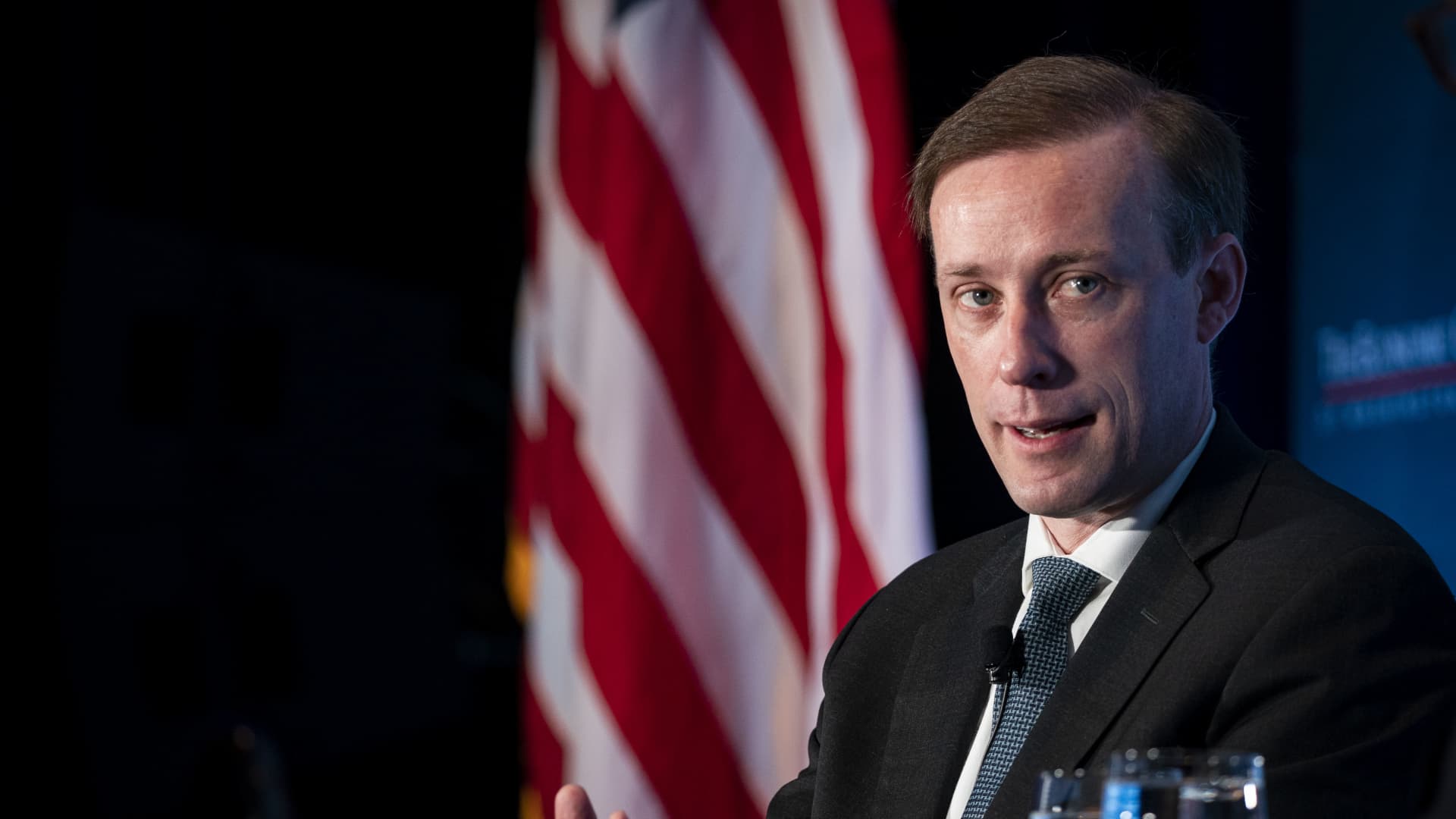WASHINGTON — U.S. and Chinese officials met for two days in Vienna to discuss a range of topics, including Russia’s war in Ukraine, amid tensions between the world’s two largest economies.
“The two sides had candid, substantive, and constructive discussions on key issues in the U.S.-China bilateral relationship, global and regional security issues, Russia’s war against Ukraine, and cross-Strait issues, among other topics,” the White House said Thursday in a readout of the meeting between Biden’s national security advisor Jake Sullivan and China’s top diplomat Wang Yi.
The White House said it aims to keep up open communication with China, as Washington increasingly sharpens its rhetoric around Beijing’s policies around the globe. The U.S. has tried to deter Beijing from providing weapons or other support for Moscow’s war effort.
The White House National Security Council and the State Department did not respond to CNBC’s requests for more details on the meeting.
The White House said the two sides agreed to continue the “strategic channel of communication” and build on the meeting between Biden and Chinese President Xi Jinping in Bali, Indonesia last year.
Sullivan has reiterated deep U.S. concerns about China’s alignment with Russia and the possibility that the world’s second-largest economy may attempt to help Moscow blunt sanctions.
Since Russia invaded its ex-Soviet neighbor, Washington and its allies have imposed rounds of coordinated sanctions, vaulting Russia past Iran and North Korea as the world’s most-sanctioned country.
The White House has said that it has not observed Beijing providing military assistance to the Kremlin for its fight in Ukraine.
Sullivan’s trip comes as the U.S. inches closer to potentially defaulting on its debt and as Russia’s war in Ukraine approaches its 450th day.
Last week, the director of America’s top spy agency warned lawmakers that Russia and China will take advantage if the U.S. fails to raise its debt ceiling. U.S. Director of National Intelligence Avril Haines said both Moscow and Beijing would attempt to highlight “the chaos within the United States, that we’re not capable of functioning as a democracy.”
The debt ceiling, which was first put in place by Congress during World War I, is the limit on the amount of money the federal government can borrow to pay for defense expenditures as well as mandatory programs, such as Social Security and Medicaid.
Treasury Secretary Janet Yellen has warned that the U.S. could default on its debt, a historic first, as early as June 1.
In February, former Secretaries of Defense Leon Panetta and Chuck Hagel warned that the federal government defaulting on its bills will weaken U.S. national security.
“The consequence of debt-ceiling brinksmanship is a dangerous self-inflicted wound that tells both our friends and our enemies that we cannot be trusted. Such brinksmanship weakens our national security,” the former Pentagon chiefs wrote in a letter.
The former secretaries added that Russian President Vladimir Putin “will be watching to measure the credibility of U.S. economic power” while Washington leads efforts to give Kyiv military aid and coordinate global sanctions on Moscow.
